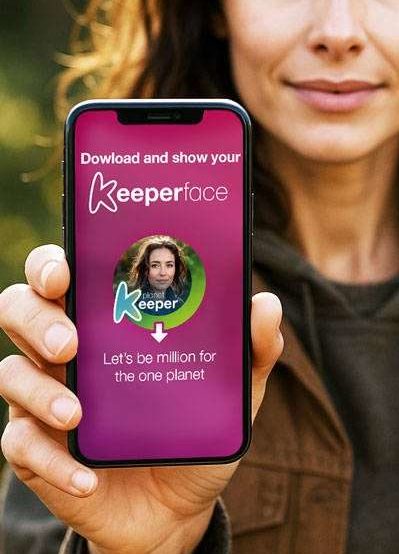Introduction
In an era where over 90 million tons of PET are produced annually worldwide, only a fraction undergoes recycling, with even less being upcycled into equivalent or higher value products. The introduction of enzymatic recycling by Carbios represents a leap towards addressing this challenge. This technology not only promises enhanced efficiency and sustainability but also tackles hard-to-recycle PET waste including dyed textiles and complex packaging materials.
Breaking The Plastic Wave
Carbios’ pioneering C-ZYME™ technology depolymerizes up to 97% of PET plastics into their constituent monomers within just 16 hours—a process reportedly 10,000 times faster than its predecessors. This breakthrough has profound implications for the lifecycle and recyclability of plastics, potentially transitioning the industry toward true circularity where materials are reused indefinitely without loss of quality or performance.
Industrial Viability and Scalability
2023 marked a significant leap towards industrial scalability when Carbios teamed up with major brands to produce food-grade PET bottles from entirely recycled plastics. By 2025, plans for a large-scale facility capable of handling 40,000 tons annually underline a commitment to transforming laboratory success into real-world application. However, scalability transcends mere volume; it encompasses economic viability, integration with existing infrastructure, and market acceptance amid regulatory landscapes.
Environmental Implications: Beyond Recycling Metrics
While Carbios’ enzymatic process consumes less energy and water than traditional chemical recycling methods, holistic assessments including life cycle analyses remain limited. Independent studies highlight the need for detailed scrutiny of energy input, chemical use, and effluent output. Moreover, critics argue that focusing solely on recycling efficacy might overlook broader issues like overproduction and consumption patterns in industries such as fast fashion.
Challenges on The Road to Infinite Recycling
The notion of “infinite” recycling underscores an ideal scenario where PET plastics can be continuously recycled without degradation. Real-world applications reveal complexities such as loss during processing and the necessity for high-purity feedstocks—challenges that additives like dyes present. Each cycle might necessitate virgin materials to compensate for losses, thereby questioning the infinite loop in practical settings.
KEY FIGURES
- Carbios’ enzymatic recycling can break down 97% of PET plastics in just 16 hours, reportedly up to 10,000 times faster than previous biological recycling methods (Source: Plastics Engineering, 2023) [5].
- Worldwide PET production is about 90 million tons per year, with over two-thirds used for fibers; only 13% of textile waste is currently recycled, mostly downcycled (Source: Carbios, 2022) [1].
- Carbios received €827,200 funding from ADEME for validating its enzymatic recycling at pilot scale (Source: Carbios, 2022) [1].
RECENT NEWS
- May 2023: Carbios and consortium brands (Biotherm, Perrier, Pepsi Max, Orangina) produced the first food-grade PET bottles entirely from enzymatically recycled plastics, demonstrating industrial viability (Source: Plastics Engineering, 2023) [5].
- June 2023: Chemistry World reports Carbios can enzymatically recycle hard-to-recycle polyester fibers and textiles back into monomers for virgin-quality PET production (Source: Chemistry World, 2023) [4].
- May 2025: Carbios published in Nature journal a peer-reviewed article demonstrating an engineered enzyme that biologically depolymerizes all PET plastic waste, enabling efficient recycling into new bottles (Source: Carbios, 2025) [3].
STUDIES AND REPORTS
- A 2025 Nature article details Carbios’ engineered PET-depolymerase enzyme capable of breaking down all PET waste, including textiles, paving the way for a true circular economy for PET plastic (Source: Carbios / Nature, 2025) [3].
- Research from Toulouse Biotechnology Institute (2020) confirms Carbios’ enzymatic process can recycle PET waste into monomers that produce PET with equivalent mechanical properties to virgin material, unlike thermomechanical recycling which degrades quality (Source: Labiotech, 2020) [2].
- ADEME co-funded validation demonstrates that Carbios’ enzymatic recycling produces white PET fiber from colored textile waste and 100% recycled PET bottles passing food-contact safety tests (Source: Carbios, 2022) [1].
TECHNOLOGICAL DEVELOPMENTS
- Carbios’ C-ZYME™ enzymatic process can enzymatically depolymerize PET waste, including colored textile blends and complex packaging, into pure monomers for repolymerization (Source: Carbios, 2022) [1].
- The enzyme is optimized from a natural compost-heap enzyme to achieve high throughput and efficiency across diverse PET waste streams (Source: Plastics Engineering, 2023) [5].
- Industrial demonstration plants launched since 2021, with a planned 40,000-ton annual industrial facility by 2025, aiming to scale enzymatic recycling to commercial volumes (Source: Labiotech, 2020; Plastics Engineering, 2023) [2][5].
OTHER CONSIDERATIONS
- Infinite recyclability claims hinge on pure PET streams; dyes, elastane blends, and additives complicate processing and may require pre-treatment or sorting.
- Energy, water, and chemical inputs for enzymatic depolymerization are reportedly lower than traditional chemical recycling, but detailed life cycle analysis (LCA) data from independent third parties remain limited or unpublished publicly so far.
- Carbios’ process generates less toxic effluent and residual sludge compared to chemical recycling routes, but comprehensive environmental impact assessments are needed for industrial scale.
- The enzymatic process aims to avoid downcycling and maintain mechanical properties, potentially reducing reliance on virgin petrochemical PET. However, the system’s success depends on scaling, cost, and integration with existing waste collection and sorting infrastructure.
- Critics note that “closed-loop” recycling alone may not address overproduction or fast fashion dynamics; systemic changes like repair, reuse, and reduced virgin PET use are crucial for sustainability.
MAIN SOURCES
-
- https://www.carbios.com/en/bioreycling-textiles/ – Official Carbios enzymatic recycling project details and pilot results (2022)
- https://www.labiotech.eu/trends-news/carbios-bioplastics-recycling/ – Overview of Carbios enzymatic PET recycling and industrial demo plant (2020)
- https://www.arbios.org/en/carbios-announced-the-publication-of-an-article-on-its-enzymatic-recycling-technology-in-the-prestigious-scientific-journal-nature/ – Peer-reviewed Nature article announcement on engineered PET-depolymerase (2025)
- https://www.chemistryworld.com/news/recycling-plastic-with-enzymes/4017604.article – Chemistry World coverage of Carbios’ enzymatic recycling of PET fibers and textiles (2023)
- https://www.plasticsengineering.org/2023/05/carbios-broadens-enzyme-recycling-technology-000285/ – Details on consortium, industrial scale-up, and enzyme efficiency (2023)
Summary: Carbios’ enzymatic recycling represents a scientifically validated and industrially advancing technology that can depolymerize PET—including textiles and colored waste—into monomers for producing virgin-quality PET, potentially enabling a closed-loop system. However, “infinite” recyclability depends on sorting and feedstock purity, and independent, detailed LCAs and mass balances are still scarce publicly. The technology reduces reliance on virgin PET and may lower environmental impacts compared to traditional recycling but should be integrated with broader sustainability strategies to address systemic issues in polyester production and consumption. [1][2][3][4][5]
Propaganda Risk Analysis
Score: 6/10 (Confidence: medium)
Key Findings
Corporate Interests Identified
Carbios benefits directly as the innovator, with partnerships involving major corporations like L’Oréal, Nestlé Waters, PepsiCo, and Suntory, who are mentioned in web sources as piloting or supporting the technology. Novozymes, as a collaborator, gains from promoting enzyme-based solutions. These companies stand to enhance their sustainability image through association with ‘green’ tech, potentially diverting attention from broader plastic production issues.
Missing Perspectives
Environmental NGOs, independent researchers, or critics focusing on the full lifecycle energy costs of enzymatic recycling are largely absent. Web sources and X posts emphasize success stories and breakthroughs, excluding voices that question scalability, real-world energy consumption, or comparisons to alternatives like reducing plastic use altogether.
Claims Requiring Verification
Claims that the enzymatic process ‘consumes less energy’ than traditional methods lack specific, independently verified data in the article snippet. Web articles reference ‘revolutionary’ depolymerization but often cite company-provided studies without third-party audits; some X posts echo global plastic waste figures (e.g., 353 million tons with only 9% recycled) without sourcing, potentially inflating urgency to justify the tech.
Social Media Analysis
Searches on X/Twitter reveal a mix of promotional content from official accounts like news agencies and biotech firms praising Carbios’ enzyme tech for enabling infinite PET recycling and advancing circular economy goals, with high view counts on partnered posts from 2023. Recent discussions (as of August 2025) include scrutiny on energy efficiency, with users debating the true costs of reversing polymerization, but positive narratives dominate without strong counter-evidence or debunking.
Warning Signs
- Overly promotional language like ‘revolutionizing’ and ‘giant leap forward’ in web articles, mirroring corporate press releases without balanced discussion of limitations.
- Repetitive emphasis on ‘circular economy’ across sources, which may mask greenwashing by framing the technology as a complete solution while downplaying energy scrutiny mentioned in the article.
- Lack of transparency on energy inputs; recent X posts discuss energy consumption in plastic breakdown but often in a defensive or incomplete manner, avoiding detailed comparisons.
Reader Guidance
Other references :
carbios.com – Carbios takes textile circularity a step further with its enzymatic …
labiotech.eu – Is New Enzyme Technology Key to Solving Society’s Plastic Problem?
arbios.org – CARBIOS announced the publication of an article on its enzymatic …
chemistryworld.com – Recycling plastic with enzymes | Business – Chemistry World
plasticsengineering.org – Carbios Broadens Enzyme Recycling Technology
carbios.com – Source
enveurope.springeropen.com – Source
pubs.rsc.org – Source
pubs.rsc.org – Source
nature.com – Source
nature.com – Source
cen.acs.org – Source
nature.com – Source
sciencedirect.com – Source
technologyreview.com – Source
earth.org – Source
sustainableplastics.com – Source
bioplasticsnews.com – Source



